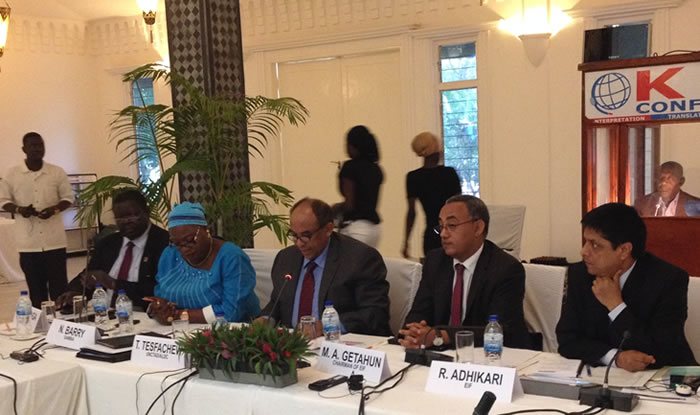UNCTAD held a panel discussion with the secretariat of the Enhanced Integrated Framework (EIF) about the consequences for West African countries of the WTO's Bali Trade Facilitation Agreement in Banjul, the Gambia, on 17 June 2014.
A special event on transit trade and trade facilitation-related problems facing least developed countries (LDCs) in the West African region was held by UNCTAD, in collaboration the Enhanced Integrated Framework (EIF) secretariat following the decision of the EIF board to hold its June meeting in the Gambia, one of the EIF beneficiary countries.
The event was held under the title "Addressing the Trade Facilitation Agreement in the context of regional trade integration and transit trade: Identifying a possible role for the Enhanced Integrated Framework".
UNCTAD has completed the updating of EIF-funded Diagnostic Trade Integration Study (DTIS) of two transit countries in West Africa - the Gambia and Senegal - and is currently updating the DTISs of two other landlocked countries in the region: Mali and Niger.
Transit trade and trade facilitation-related issues feature prominently as major challenges to international trade in the Gambia and Senegal.
Preliminary analysis shows that similar challenges will also be identified as critical obstacles to the international trade of Mali and Niger.
UNCTAD financed the participation of the two officials (the EIF focal point and a senior official from the customs department) from each country to interact with EIF Board members in a one-day workshop preceding the board meeting.

Although UNCTAD is not involved in the DTIS updating of Burkina Faso, participants from this landlocked country were also invited because of its close trade links with the other countries in the region and as user of transit routes.
The experiences of these five countries within the same region, which share common trade-facilitation-related challenges, helped the EIF Board members to understand better whether the EIF programme - which is a multilateral but nationally focused trade-related technical assistance programme - has a role to play in regional integration and can contribute to the implementation of the Trade Facilitation Agreement.
Representatives from the five countries highlighted that transit trade continues to pose major challenges and these presented a barrier to the promotion of international trade, especially for the landlocked countries in the region.
Poor implementation of the existing Interstate Road Transport Convention (ISRT) signed by the members of the Economic Community of West African States (ECOWAS), seems to be a key problem.
The ISRT provides for a Common Customs Bond guarantee, covering the transit across different customs territories. In this respect, the implementation of the WTO Trade Facilitation Agreement - particularly, Article 11 dealing with transit trade - could offer a way out of the current impasse in transit trade practices by making the ISRT work more effectively.


